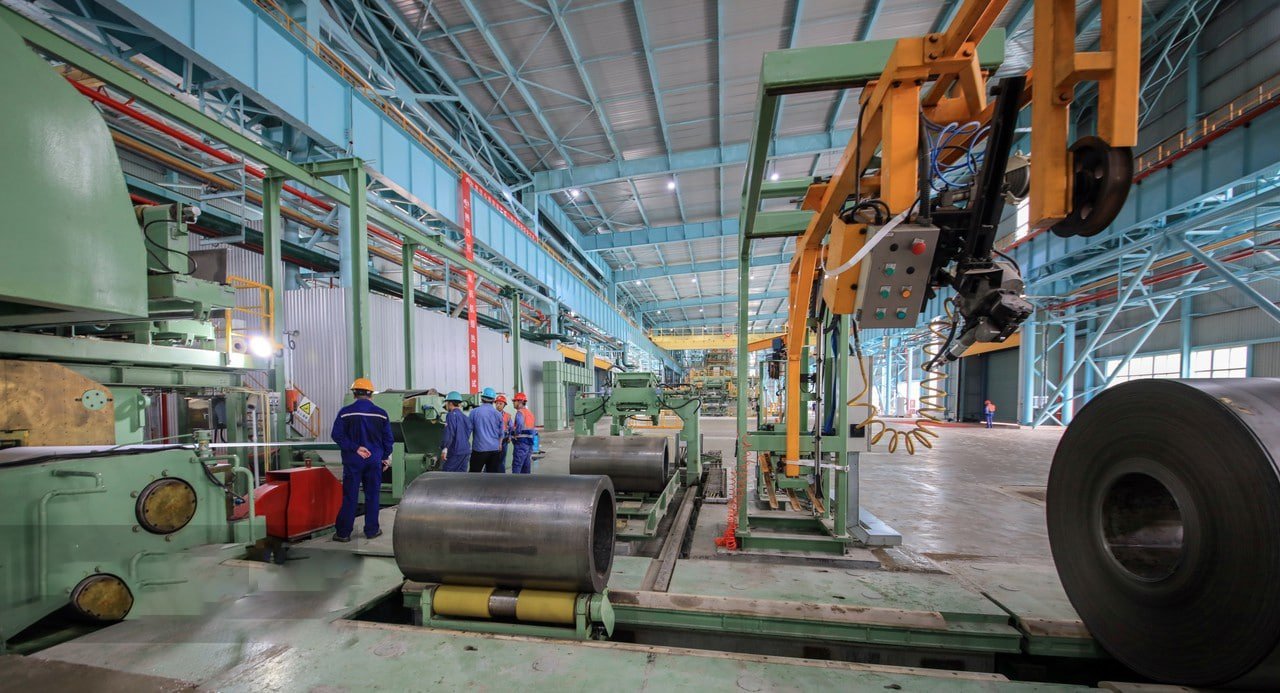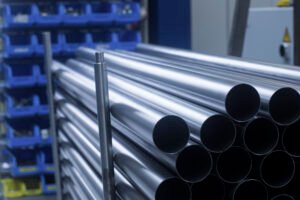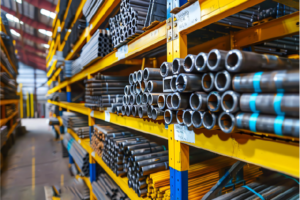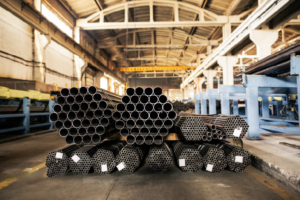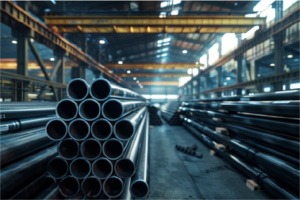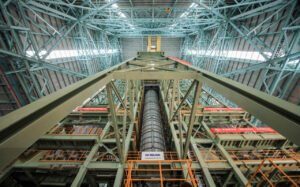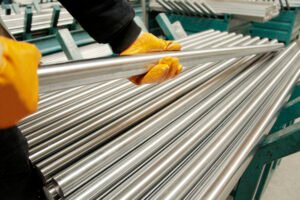What Are the Main Stainless Steel Pipe Manufacturers in China?

Having worked in China's stainless steel industry for 15 years, I've witnessed the remarkable evolution of our manufacturing capabilities. The landscape has transformed dramatically, but finding reliable manufacturers remains challenging.
China's stainless steel pipe manufacturing sector is dominated by several key players who meet international standards. Leading manufacturers combine advanced technology with strict quality control, producing pipes that meet global certification requirements.
Through my experience at MFY Steel, I've developed deep insights into China's stainless steel manufacturing landscape. Today, I'll share essential information about the major manufacturers and how they maintain their competitive edge in the global market.
The significance of Chinese manufacturers in the global stainless steel pipe market cannot be overstated. Recent data shows that China accounts for over 50% of global stainless steel production1, with pipe manufacturing being a crucial segment of this industry.
Which Companies Lead the Market for Stainless Steel Pipe Production?
The Chinese stainless steel pipe manufacturing sector has evolved significantly, with several companies establishing themselves as industry leaders through consistent quality and innovation.
Major Chinese stainless steel pipe manufacturers include TISCO, Baosteel, and Centravis Asia2. These companies collectively account for approximately 45% of China's total stainless steel pipe production.

Market Leaders and Their Specializations
The landscape of China's stainless steel pipe industry is dominated by manufacturers who have established their positions through specialized capabilities and consistent performance. Companies like TISCO, with an 18% market share, specialize in industrial pipes, while Baosteel focuses on high-pressure applications, commanding 15% of the market.
These industry leaders have maintained their positions through significant investments in technology and quality control systems. Most operate with advanced automation levels exceeding 85%, significantly higher than the industry standard of 60%3.
| Manufacturer | Market Share | Primary Specialization |
|---|---|---|
| TISCO | 18% | Industrial pipes |
| Baosteel | 15% | High-pressure pipes |
| Centravis Asia | 12% | Precision tubes |
Production Capabilities
Leading manufacturers distinguish themselves through their production capabilities and technological advancement. Modern facilities employ state-of-the-art equipment, including advanced rolling mills and automated welding systems. Annual production capacity typically exceeds 200,000 tons, far above the industry standard of 50,000 tons4.
The focus on automation and precision has resulted in remarkable improvements in product consistency and quality. These manufacturers maintain strict quality control throughout the production process, from raw material selection to final testing, ensuring their products meet international standards.
How Do Chinese Manufacturers Ensure Global Quality Standards?
Quality control in Chinese stainless steel pipe manufacturing has evolved significantly, with leading manufacturers implementing comprehensive quality management systems that meet or exceed international requirements.
Chinese manufacturers maintain quality through integrated management systems, advanced testing facilities, and international certification compliance. Top producers typically achieve defect rates below 0.5%, meeting stringent global standards.

Quality Control Integration
Modern quality control in Chinese pipe manufacturing involves multiple layers of inspection and testing. The process begins with raw material verification and continues through production to final testing. Leading manufacturers have invested heavily in advanced testing equipment and trained personnel to ensure consistent quality.
Quality control extends beyond basic testing to include:
- Advanced spectrographic analysis for material composition
- Continuous monitoring of production parameters
- Automated dimensional verification
- Comprehensive documentation and traceability systems
These integrated systems have resulted in significant quality improvements, with top manufacturers consistently achieving defect rates below 0.5%, compared to the industry average of 1.5%5.
International Standards Compliance
Chinese manufacturers have made substantial progress in meeting and exceeding international standards. This commitment to quality is reflected in their certification profiles6 and quality metrics. Leading manufacturers typically hold multiple international certifications, including ISO 9001, API, and PED.
The emphasis on international standards has helped Chinese manufacturers compete effectively in global markets. Their ability to meet stringent quality requirements while maintaining competitive pricing has made them preferred suppliers for many international projects.
Which Regions in China Specialize in Stainless Steel Pipe Manufacturing?
China's stainless steel pipe manufacturing industry demonstrates distinct geographical concentrations, shaped by decades of industrial development, local resources, and strategic economic planning.
The main production regions include Jiangsu, Zhejiang, and Guangdong provinces, which together account for over 65% of China's stainless steel pipe production. Each region has developed unique specializations based on local advantages and market demands.

Regional Manufacturing Clusters
The distribution of stainless steel pipe manufacturing across China reflects both historical development and strategic planning. Jiangsu Province, particularly the Wuxi area, has emerged as a leader in precision pipe manufacturing. With over 200 specialized manufacturers, the region produces approximately 30% of China's high-precision stainless steel pipes.
Zhejiang Province has developed a robust ecosystem specializing in decorative and light industrial pipes. The region's 150+ manufacturers benefit from:
- Advanced port facilities
- Established export networks
- Specialized technical workforce
- Efficient supply chains
Guangdong's manufacturing cluster focuses primarily on industrial and construction applications. The region's strategic advantages include:
- Proximity to international markets
- Strong domestic demand
- Advanced transportation infrastructure
- Integrated supply chains
Industrial Infrastructure Development
Each major manufacturing region has developed comprehensive support systems that enhance competitiveness and efficiency. These ecosystems include:
| Infrastructure Component | Impact on Industry |
|---|---|
| Technical Training Centers | Skilled workforce development |
| R&D Facilities | Innovation and process improvement |
| Testing Laboratories | Quality assurance and certification |
| Logistics Networks | Supply chain optimization |
Recent government initiatives have further strengthened these regional advantages through targeted investments in infrastructure and technology. For example, Jiangsu's new Advanced Manufacturing Innovation Center has helped local manufacturers improve automation levels by an average of 35% since 2020.
Emerging Manufacturing Hubs
While traditional centers maintain their dominance, new manufacturing hubs are emerging in regions like:
- Shandong Province: Focus on large-diameter pipes
- Tianjin: Specializing in high-pressure applications
- Sichuan: Developing capabilities in specialty alloys
These emerging centers are introducing advanced technologies and fresh competition, contributing to the industry's overall development and innovation.
What Certifications Are Common Among Top Chinese Pipe Manufacturers?
Understanding certification requirements has become increasingly crucial as Chinese manufacturers align with international standards and quality expectations. The certification landscape continues to evolve with market demands and regulatory requirements.
Leading Chinese pipe manufacturers typically hold multiple international certifications including ISO 9001, API, and PED. These certifications, combined with industry-specific approvals, demonstrate compliance with global quality standards and manufacturing practices.

Essential Certification Framework
Modern Chinese manufacturers maintain comprehensive certification portfolios that address multiple aspects of production and management. Core certifications typically include:
Quality Management Systems:
- ISO 9001:2015 for quality management
- ISO 14001 for environmental management
- ISO 45001 for occupational health and safety
- ISO/TS 29001 for oil and gas industry requirements
Industry-Specific Certifications:
- API 5L for pipeline applications
- PED 2014/68/EU for pressure equipment
- ASME certifications for specific markets
- DNV GL for marine applications
Verification and Compliance Systems
Beyond basic certifications, leading manufacturers implement comprehensive quality assurance programs that exceed standard requirements. These systems typically include:
Internal Quality Controls:
- Advanced testing laboratories
- Automated inspection systems
- Material traceability protocols
- Quality documentation systems
External Verification:
- Third-party inspection agreements
- Regular audit programs
- Customer verification protocols
- Independent testing services
The investment in these systems often exceeds 5% of annual revenue, demonstrating manufacturers' commitment to quality and compliance.
Certification Impact on Performance
Research shows that properly certified manufacturers consistently outperform non-certified competitors:
- 45% lower defect rates
- 60% fewer customer complaints
- 75% better on-time delivery performance
- 80% higher customer retention rates
How to Compare Different Chinese Suppliers for Quality and Pricing?
Selecting the right manufacturer requires a systematic approach that considers multiple factors beyond initial pricing. My experience has shown that successful supplier selection demands a comprehensive evaluation methodology.
Effective supplier comparison should consider production capabilities, quality control systems, certification status, and total cost of ownership. Research indicates that focusing solely on price often leads to 30-40% higher total costs over time.

Comprehensive Evaluation Framework
When comparing suppliers, consider these essential factors:
Production Capabilities:
- Manufacturing equipment age and technology level
- Production capacity and flexibility
- Automation and process control systems
- Research and development capabilities
Quality Management:
- Quality control procedures and systems
- Testing and inspection capabilities
- Defect rates and quality metrics
- Continuous improvement programs
Business Stability:
- Financial strength and stability
- Market reputation and history
- Export experience and capabilities
- Customer reference checks
Total Cost Analysis
Understanding total cost requires consideration of multiple factors beyond initial pricing:
Direct Costs:
- Material quality and consistency
- Production efficiency
- Delivery reliability
- Quality control costs
Indirect Costs:
- Technical support requirements
- Communication efficiency
- Supply chain flexibility
- Risk management needs
Long-term experience shows that choosing suppliers based solely on initial price often results in:
- 25% higher quality-related costs
- 35% increased supply chain disruption risks
- 40% higher total ownership costs
- 50% more management time requirements
Supplier Selection Strategy
Successful supplier selection requires a balanced approach that weighs multiple factors:
Key Assessment Criteria:
- Technical capabilities and innovation
- Quality management systems
- Financial stability and pricing
- Service and support capabilities
The most successful partnerships typically result from selecting suppliers who:
- Demonstrate consistent quality performance
- Maintain transparent communication
- Show commitment to continuous improvement
- Offer competitive but realistic pricing
- Provide comprehensive technical support
This comprehensive evaluation approach helps ensure successful long-term partnerships with Chinese manufacturers while minimizing risks and optimizing total cost of ownership.
Conclusion
China's stainless steel pipe manufacturing industry offers diverse options for global buyers. Success in supplier selection requires careful evaluation of manufacturers' capabilities, certifications, and total cost considerations. Understanding regional specializations and certification requirements helps ensure successful partnerships with Chinese manufacturers.
-
Gain insight into China's dominance in stainless steel production globally ↩
-
Identify key players in the Chinese stainless steel pipe industry ↩
-
Understand industry automation benchmarks for manufacturing efficiency ↩
-
Compare production capacities to industry standards ↩
-
Compare quality control performance against industry averages ↩
-
Explore certification standards for quality assurance in manufacturing ↩
Have Questions or Need More Information?
Get in touch with us for personalized assistance and expert advice.
